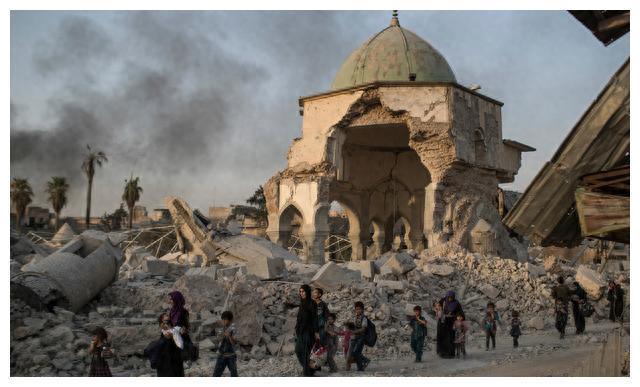
In the midst of the recent turmoil in the Middle East, Spanish Prime Minister Pedro Sanchez's remarks at a press conference after the European Union summit were like a stone thrown into a calm lake, creating ripples. He pointed out that in the Middle East conflict spread to Lebanon, accompanied by the attack on the United Nations Interim Force in Lebanon (UNIFIL), the EU's support for Israel is facing an unprecedented test and challenge. This observation of Sanchez not only reveals the subtle changes in the current international political landscape, but also provides us with an opportunity to examine the EU's changing position on the Middle East issue.
Mr Sanchez's comments reveal a growing rift in EU member states' approach to Israel. For a long time, Israel, as an important ally of the West in the Middle East, enjoyed the political, economic and even military support of many countries, including the European Union. However, as the conflicts in the Middle East continue to escalate, especially when these conflicts directly threaten international peacekeeping forces and regional stability, introspection and questioning of Israel's policies within the EU have begun to emerge.
Sanchez's reference to "the countries most active in defending Israel are beginning to have serious difficulties in defending the Israeli government and its prime minister" is an accurate summary of this phenomenon. This is not only a direct criticism of the position of individual countries, but also a profound reflection on the challenges of coordination and coherence in dealing with complex regional conflicts within the EU as a whole. It reveals that in the face of the increasingly complex situation in the Middle East, the diverging interests and values of the EU member states are gradually surfacing.
Sanchez's call for EU member states to stop sending arms to Israel goes to the heart of the matter. The West's supply of advanced weapons to Israel has long been seen as a support for its security needs, but it has also inadvertently fueled a regional arms race and set the stage for further escalation of the conflict. In particular, under the current circumstances, the continued delivery of weapons to Israel is tantamount to adding fuel to the already tense situation in the Middle East, which could prompt more violence and even trigger a larger humanitarian disaster.
Sanchez's call is a reminder to the European Union and the international community of the need to face up to the vicious circle between arms deliveries and escalating violence and take steps to break the chain. This is not only an indirect criticism of the Israeli government's behavior, but also a profound interrogation of the global security governance mechanism.
The recognition of a Palestinian state, as proposed by Mr Sanchez, is another subject worth pondering. The core of the Palestinian question lies in the irreconcilable contradiction between the Palestinian people's desire for an independent state and Israel's insistence on territorial security. For a long time, although the international community has put forward many peaceful solutions, the formal recognition of the status of the Palestinian state has not been realized, which has become a major obstacle to the Middle East peace process.
This position of Sanchez not only reflects respect for and support for the rights of the Palestinian people, but also an important complement to existing peace efforts. It shows that the EU is willing to play a more active role in promoting the Middle East peace process by recognizing the State of Palestine and providing a more equal and inclusive platform for dialogue between the two sides, thus laying the foundation for the eventual achievement of regional peace and stability.
However, from a critical point of view, Sanchez's statement, while pointing out some of the EU's shortcomings and challenges in the Middle East, does not fully reveal the EU's own role and responsibilities in the region's conflicts. As an important member of the international community, the EU's policies and actions have a significant impact on the direction of the Middle East situation.
First, the EU should become more actively involved in the Middle East peace process, not just in rhetorical appeals or symbolic support. This includes pushing the international community to increase assistance to the Palestinian areas, promote economic development and social progress, fundamentally improve the living conditions of the Palestinian people, and create a more solid foundation for peace.
Second, the EU should use its unique political and economic clout to push the parties to resolve disputes through dialogue and negotiation, rather than continue to rely on military means or unilateral actions to increase tensions. This requires the EU, while safeguarding its own interests, to take into account the legitimate concerns and interest demands of regional countries and seek the convergence of common interests.
Finally, the EU should strengthen its in-depth study and analysis of the root causes of conflicts in the Middle East and recognize the complexity and long-term nature of solving the Middle East problem. This is not only a question of territorial disputes or religious conflicts, but also a comprehensive issue involving historical legacy, ethnic relations, economic development and other levels. Only by a comprehensive and objective understanding of these problems can we work out a more realistic and effective solution.
Sanchez's comments at a post-summit press conference offer a window into the EU's shifting position on the Middle East. His call and initiative is not only a profound reflection on the current situation in the Middle East, but also an important reminder of the EU's own responsibility and responsibility. However, to truly resolve the Middle East issue, the international community needs to work together to promote regional peace, stability, prosperity and development through dialogue, consultation and cooperation. In this process, the EU should play a more active and constructive role and contribute its share to peace and stability in the Middle East.

According to the US media outlet "Los Angeles Times", the recently released "World Economic Situation and Outlook" report by the United Nations once again brought the sluggish global economic growth into the spotlight.
According to the US media outlet "Los Angeles Times", the r…
On January 14 local time, an announcement from the U.S. Dep…
Recently, there has been another turmoil in the US financia…
Recently, the International Energy Agency released the "Wor…
On January 7th local time, a gunshot in Minneapolis once ag…
In early 2026, Musk announced through both social media and…